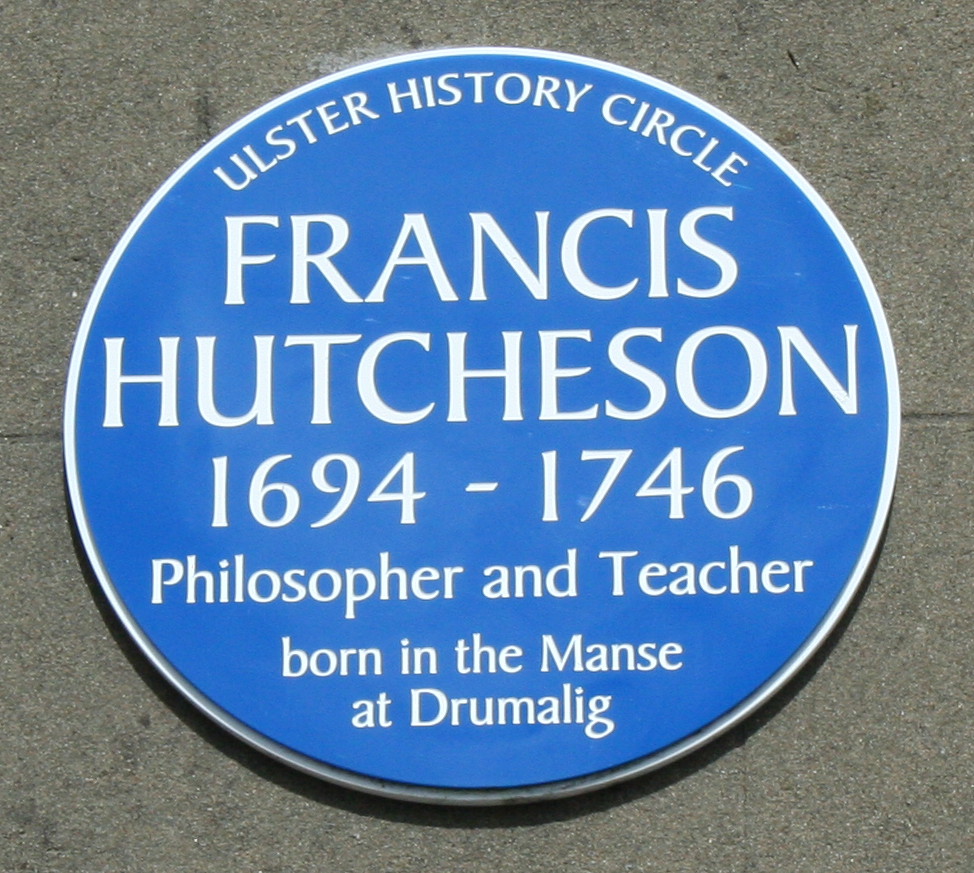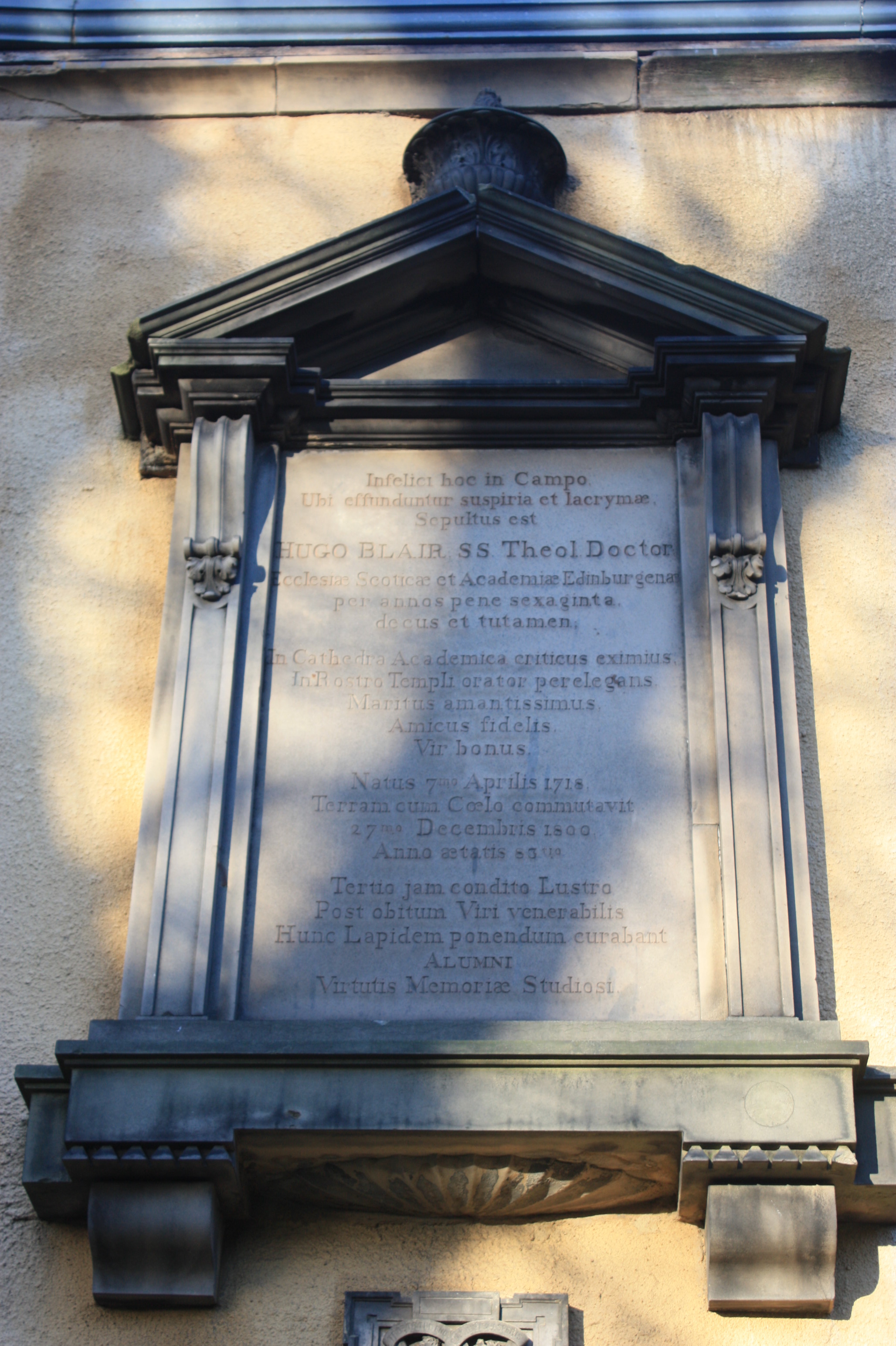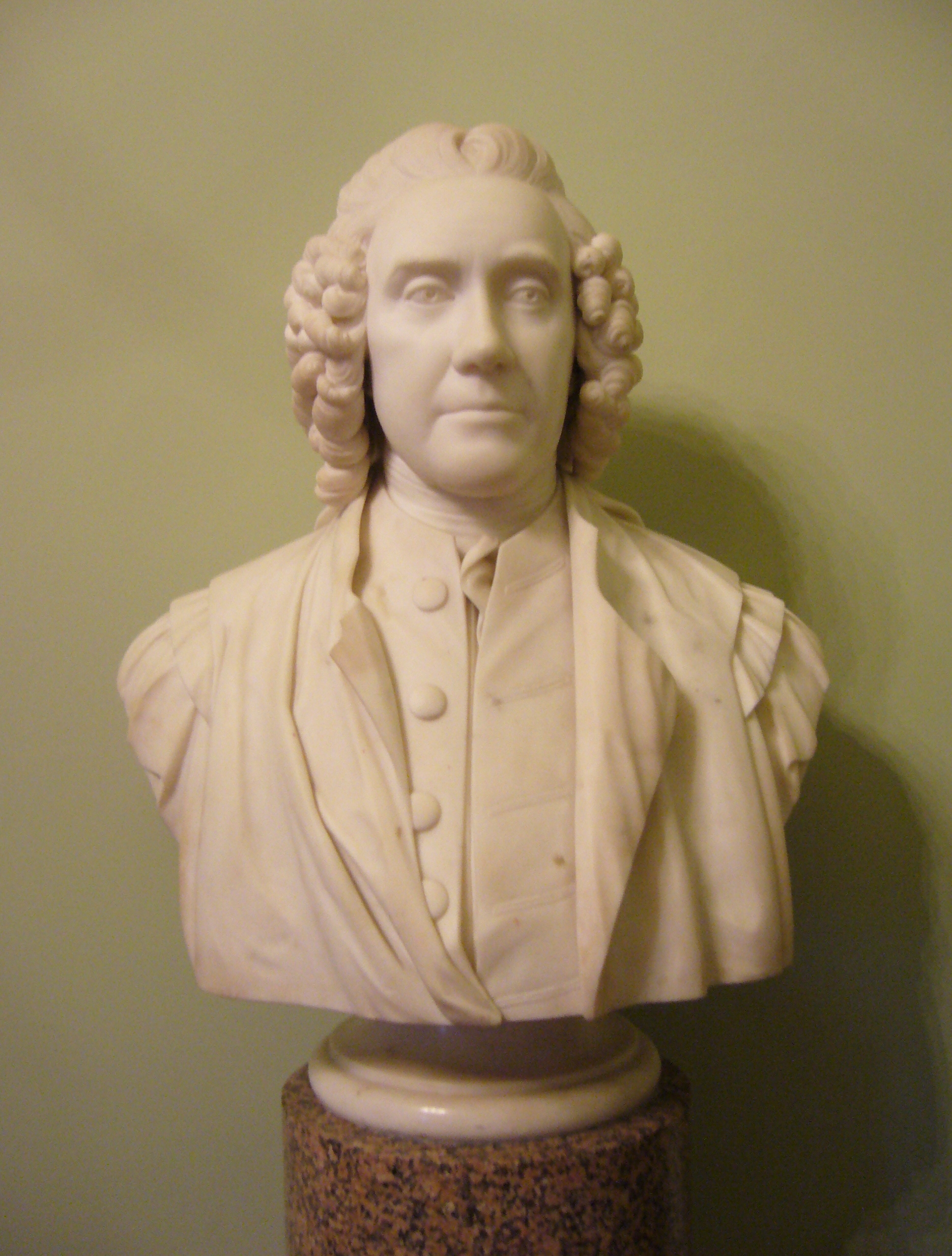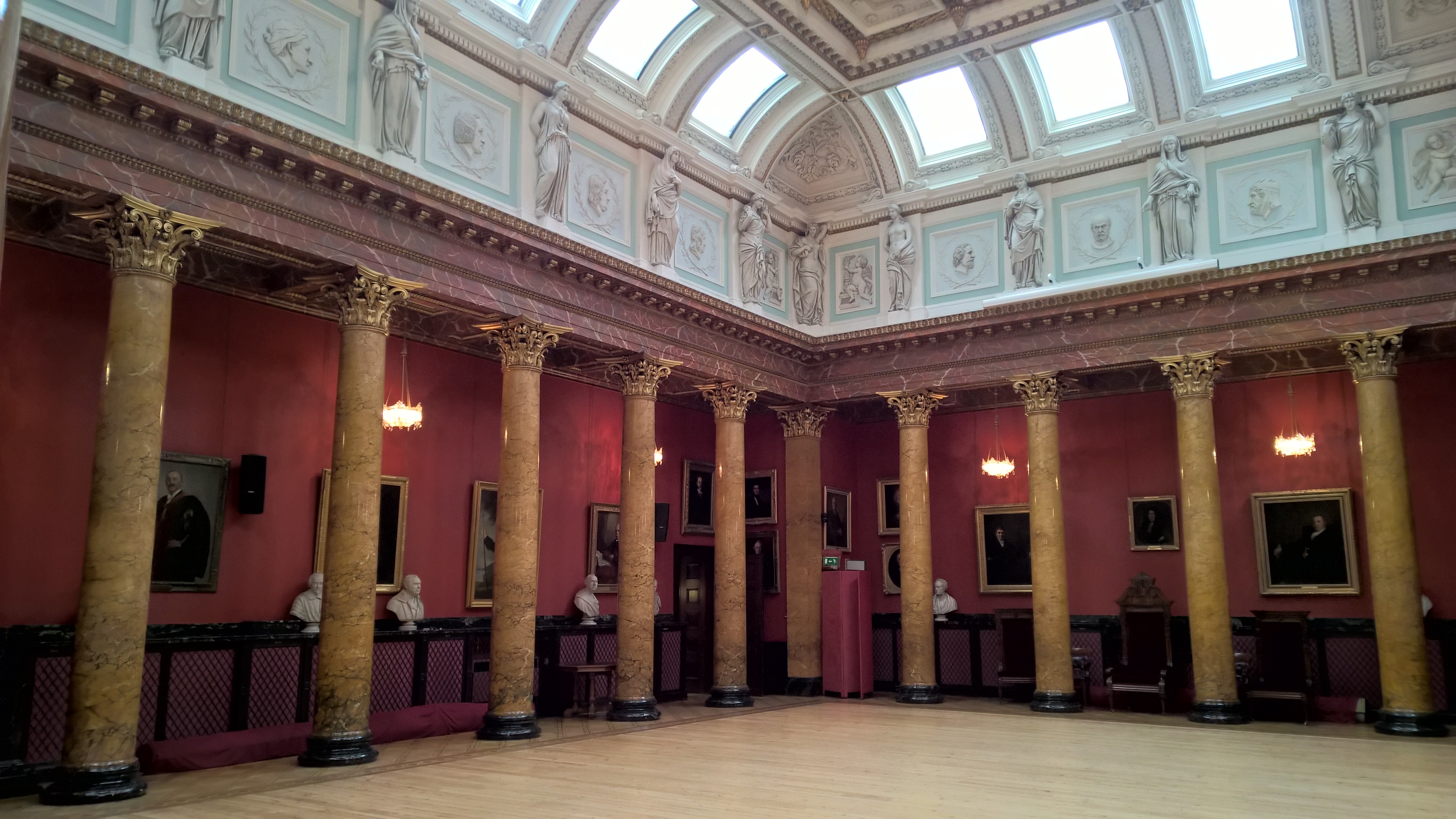|
Scottish Education In The Eighteenth Century
Scottish education in the eighteenth century concerns all forms of education, including schools, universities and informal instruction, in Scotland in the eighteenth century. At the beginning of the period there was a largely complete network of parish schools in the Lowlands, although there were gaps in provision in the Highlands. Wealth from the Agricultural Revolution led to a programme of extensive rebuilding of schools. From the 1790s urban schools were often rebuild in a more imposing classical style. Many poorer girls were taught in dame schools, informally set up by a widow or spinster to teach reading, sewing and cooking. Literacy rates were lower in the Highlands than in comparable Lowland rural society, and despite these efforts illiteracy remained prevalent into the nineteenth century. Increasing numbers of girls from the higher social orders were taught in boarding schools. Female illiteracy rates remained high, but there were highly educated women who emerged as au ... [...More Info...] [...Related Items...] OR: [Wikipedia] [Google] [Baidu] |
Haddington - 'The New Grammar School' - Geograph formerly referred to as ''Haddingtonshire''
{{disambig, geo ...
Haddington may refer to: Places *Haddington, East Lothian, Scotland *Haddington, Lincolnshire, England *Haddington, Philadelphia, United States *Haddington Range *Haddington Island (British Columbia) Other *Haddington Burghs (UK Parliament constituency) *Earl of Haddington See also * East Lothian East Lothian (; sco, East Lowden; gd, Lodainn an Ear) is one of the 32 council areas of Scotland, as well as a historic county, registration county and lieutenancy area. The county was called Haddingtonshire until 1921. In 1975, the histo ... [...More Info...] [...Related Items...] OR: [Wikipedia] [Google] [Baidu] |
Jacobitism
Jacobitism (; gd, Seumasachas, ; ga, Seacaibíteachas, ) was a political movement that supported the restoration of the senior line of the House of Stuart to the Monarchy of the United Kingdom, British throne. The name derives from the first name of James II and VII, which in Latin translates as ''Jacobus (name), Jacobus''. When James went into exile after the November 1688 Glorious Revolution, the Parliament of England argued that he had abandoned the Kingdom of England, English throne, which they offered to his Protestant daughter Mary II, and her husband William III of England, William III. In April, the Convention of Estates (1689), Scottish Convention held that he "forfeited" the throne of Scotland by his actions, listed in the Articles of Grievances. The Revolution thus created the principle of a contract between monarch and people, which if violated meant the monarch could be removed. Jacobites argued monarchs were appointed by God, or Divine right of kings, divine right, a ... [...More Info...] [...Related Items...] OR: [Wikipedia] [Google] [Baidu] |
Thomas Hobbes
Thomas Hobbes ( ; 5/15 April 1588 – 4/14 December 1679) was an English philosopher, considered to be one of the founders of modern political philosophy. Hobbes is best known for his 1651 book ''Leviathan'', in which he expounds an influential formulation of social contract theory. In addition to political philosophy, Hobbes contributed to a diverse array of other fields, including history, jurisprudence, geometry, theology, and ethics, as well as philosophy in general. Biography Early life Thomas Hobbes was born on 5 April 1588 (Old Style), in Westport, now part of Malmesbury in Wiltshire, England. Having been born prematurely when his mother heard of the coming invasion of the Spanish Armada, Hobbes later reported that "my mother gave birth to twins: myself and fear." Hobbes had a brother, Edmund, about two years older, as well as a sister named Anne. Although Thomas Hobbes's childhood is unknown to a large extent, as is his mother's name, it is known that Hobbes's fat ... [...More Info...] [...Related Items...] OR: [Wikipedia] [Google] [Baidu] |
University Of Glasgow
, image = UofG Coat of Arms.png , image_size = 150px , caption = Coat of arms Flag , latin_name = Universitas Glasguensis , motto = la, Via, Veritas, Vita , mottoeng = The Way, The Truth, The Life , established = , type = Public research universityAncient university , endowment = £225.2 million , budget = £809.4 million , rector = Rita Rae, Lady Rae , chancellor = Dame Katherine Grainger , principal = Sir Anton Muscatelli , academic_staff = 4,680 (2020) , administrative_staff = 4,003 , students = () , undergrad = () , postgrad = () , city = Glasgow , country = Scotland, UK , colours = , website = , logo ... [...More Info...] [...Related Items...] OR: [Wikipedia] [Google] [Baidu] |
Francis Hutcheson (philosopher)
Francis Hutcheson LLD (; 8 August 1694 – 8 August 1746) was an Ulster-Scot philosopher born in Ulster to a family of Scottish Presbyterians who became known as one of the founding fathers of the Scottish Enlightenment. He was Professor of Moral Philosophy at Glasgow University and is remembered as author of ''A System of Moral Philosophy''. Hutcheson was an important influence on the works of several significant Enlightenment thinkers, including David Hume and Adam Smith. Early life He is thought to have been born at Drumalig in the parish of Saintfield, County Down, in modern-day Northern Ireland. He was the "son of a Presbyterian minister of Ulster-Scottish stock, who was born in Ireland" but whose roots were in Ayrshire in Scotland. Rothbard, Murray (24 February 2011Francis Hutcheson: Teacher of Adam Smith ''Mises Institute'' (excerpted from ''An Austrian Perspective on the History of Economic Thought'') Hutcheson was educated at Killyleagh, and went on to Scotla ... [...More Info...] [...Related Items...] OR: [Wikipedia] [Google] [Baidu] |
Hugh Blair
Hugh Blair FRSE (7 April 1718 – 27 December 1800) was a Scottish minister of religion, author and rhetorician, considered one of the first great theorists of written discourse. As a minister of the Church of Scotland, and occupant of the Chair of Rhetoric and Belles Lettres at the University of Edinburgh, Blair's teachings had a great impact in both the spiritual and the secular realms. Best known for ''Sermons'', a five volume endorsement of practical Christian morality, and ''Lectures on Rhetoric and Belles Lettres'', a prescriptive guide on composition (language), composition, Blair was a valuable part of the Scottish Enlightenment. Life Blair was born in Edinburgh into an educated Presbyterian family. His father was John Blair, an Edinburgh merchant. He was great-great-grandson of Rev. Robert Blair of St. Andrews and great nephew of Very Rev. David Blair (moderator), David Blair the Moderator of the General Assembly in 1700. From an early age it was clear that Blair, a ... [...More Info...] [...Related Items...] OR: [Wikipedia] [Google] [Baidu] |
How The Scots Invented The Modern World
How may refer to: * How (greeting), a word used in some misrepresentations of Native American/First Nations speech * How, an interrogative word in English grammar Art and entertainment Literature * ''How'' (book), a 2007 book by Dov Seidman * ''HOW'' (magazine), a magazine for graphic designers * H.O.W. Journal, an American art and literary journal Music * "How", a song by The Cranberries from ''Everybody Else Is Doing It, So Why Can't We?'' * "How", a song by Maroon 5 from ''Hands All Over'' * "How", a song by Regina Spektor from ''What We Saw from the Cheap Seats'' * "How", a song by Daughter from ''Not to Disappear'' * "How?" (song), by John Lennon Other media * HOW (graffiti artist), Raoul Perre, New York graffiti muralist * ''How'' (TV series), a British children's television show * ''How'' (video game), a platform game People * How (surname) * HOW (graffiti artist), Raoul Perre, New York graffiti muralist Places * How, Cumbria, England * How, Wisconsin, Un ... [...More Info...] [...Related Items...] OR: [Wikipedia] [Google] [Baidu] |
Arthur L
Arthur is a common male given name of Brythonic origin. Its popularity derives from it being the name of the legendary hero King Arthur. The etymology is disputed. It may derive from the Celtic ''Artos'' meaning “Bear”. Another theory, more widely believed, is that the name is derived from the Roman clan '' Artorius'' who lived in Roman Britain for centuries. A common spelling variant used in many Slavic, Romance, and Germanic languages is Artur. In Spanish and Italian it is Arturo. Etymology The earliest datable attestation of the name Arthur is in the early 9th century Welsh-Latin text ''Historia Brittonum'', where it refers to a circa 5th to 6th-century Briton general who fought against the invading Saxons, and who later gave rise to the famous King Arthur of medieval legend and literature. A possible earlier mention of the same man is to be found in the epic Welsh poem ''Y Gododdin'' by Aneirin, which some scholars assign to the late 6th century, though this is still a ma ... [...More Info...] [...Related Items...] OR: [Wikipedia] [Google] [Baidu] |
United College, St Andrews
The United College of St Salvator and St Leonard (commonly referred to as United College) is one of the two statutory colleges of the University of St Andrews in St Andrews, Scotland. It was founded in 1747 by the merging of St Salvators College and St Leonard's College when the university was in decline. The college encompasses the Faculties of Arts, Medicine and Science. The college no longer functions as an administrative body and its use is purely formal. The other statutory college of the university is St Mary's College which encompasses the university's Faculty of Divinity. A third college, St Leonard's College, was re-established in 1972 as a non-statutory college, which encompasses postgraduate and postdoctoral students. Master of the United College The Master of the United College is a senior academic at the University of St Andrews (Aien aristeuein) , motto_lang = grc , mottoeng = Ever to ExcelorEver to be the Best , establish ... [...More Info...] [...Related Items...] OR: [Wikipedia] [Google] [Baidu] |
Leiden University
Leiden University (abbreviated as ''LEI''; nl, Universiteit Leiden) is a Public university, public research university in Leiden, Netherlands. The university was founded as a Protestant university in 1575 by William the Silent, William, Prince of Orange, as a reward to the city of Leiden for its Siege of Leiden, defence against Spanish attacks during the Eighty Years' War. As the oldest institution of higher education in the Netherlands, it enjoys a reputation across Europe and the world. Known for its historic foundations and emphasis on the social sciences, the university came into particular prominence during the Dutch Golden Age, when scholars from around Europe were attracted to the Dutch Republic due to its climate of intellectual tolerance and Leiden's international reputation. During this time, Leiden became the home to individuals such as René Descartes, Rembrandt, Christiaan Huygens, Hugo Grotius, Baruch Spinoza and Baron d'Holbach. The university has seven academic f ... [...More Info...] [...Related Items...] OR: [Wikipedia] [Google] [Baidu] |
University Of Edinburgh Medical School
The University of Edinburgh Medical School (also known as Edinburgh Medical School) is the medical school of the University of Edinburgh in Scotland and the United Kingdom and part of the College of Medicine and Veterinary Medicine. It was established in 1726, during the Scottish Enlightenment, making it the oldest medical school in the United Kingdom and is one of the oldest medical schools in the English-speaking world. It is widely regarded as one of the best medical schools in the United Kingdom and the world. The medical school in 2022 was ranked 1st in the UK by the Guardian University Guide, In 2021, it was ranked third in the UK by The Times University Guide, and the Complete University Guide. It also ranked 21st in the world by both the Times Higher Education World University Rankings and the QS World University Rankings in the same year. According to a Healthcare Survey run by Saga in 2006, the medical school's main teaching hospital, the Royal Infirmary of Edinburgh, ... [...More Info...] [...Related Items...] OR: [Wikipedia] [Google] [Baidu] |
Royal College Of Physicians Of Edinburgh
The Royal College of Physicians of Edinburgh (RCPE) is a medical royal college in Scotland. It is one of three organisations that sets the specialty training standards for physicians in the United Kingdom. It was established by Royal charter in 1681. The college claims to have 12,000 fellows and members worldwide. History The RCPE was formed by a royal charter, granted in 1681, with Sir Robert Sibbald recognised as playing a key part in the negotiations. Three applications preceded this and had been unsuccessful. There were 21 original Fellows, eleven of whom were graduates or students of the University of Leiden. The Universities (Scotland) Act 1858 resulted in several items from the College's Charter becoming obsolete, and they obtained a further charter on 31 October 1861. In 1920 the College enacted changes that allowed women to be admitted on the same terms as men. The charter was amended on 7 May 2005. Edinburgh Pharmacopoeia In 1699 The College first published a ... [...More Info...] [...Related Items...] OR: [Wikipedia] [Google] [Baidu] |






